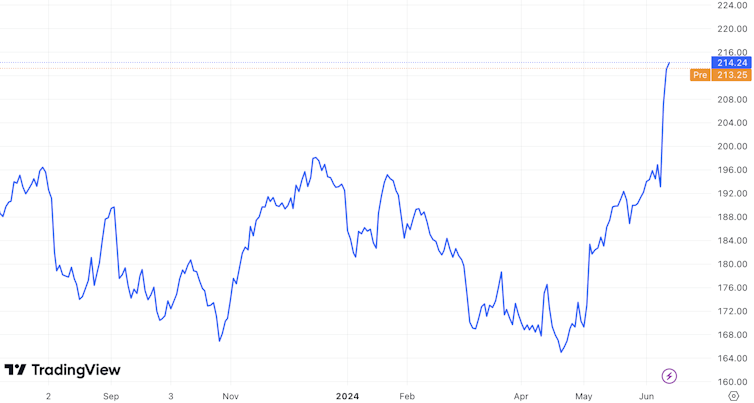here are the questions it must answer first
- Written by Jide Edu, Lecturer in Computer and Information Sciences, University of Strathclyde

Apple, a company known for its longstanding commitment to user privacy, has received flak since unveiling its artificial intelligence (AI) strategy at its Worldwide Developers Conference on June 10. This relates to the centrepiece of Apple Intelligence, which gives users access to OpenAI’s powerful generative AI tool, ChatGPT.
Some users welcomed the new features, which will initially only be available from the autumn on iPhone 15 Pro and Pro Max phones as well as laptops and tablets running on the M chips introduced in 2020. But others expressed concerns about how this aligns with Apple’s privacy commitment.
Notably Elon Musk, a co-founder of OpenAI who walked away[1] in 2018 over strategic differences, called Apple’s new partnership an unacceptable security violation. He threatened to ban Apple devices from his company offices and hinted at launching a privacy-hardwired Xphone[2] in response.
In fact, Apple has also unveiled in-house AI capabilities with Apple Intelligence. Whereas most state of the art AI is accessed by customers through a cloud, Apple users will have a modest AI facility on their devices. As well as providing a smarter version of Siri[3], this AI will be capable of specific tasks such as producing different styles of writing[4], summarising the key points in email threads, and generating images and personalised emojis.
When users need greater AI capabilities, they will be able to turn to Apple’s new larger cloud-based AI, and also ChatGPT. This is where the concerns come in. For a company known for building its own technology, this sudden shift has led people like Musk to wonder why Apple cannot build all its artificial intelligence in-house.
These concerns are certainly valid and highlight the need for careful consideration of the implications of this collaboration with OpenAI which, like Apple, is based in California. However, it is important to note that Apple says it has taken steps to ensure that user privacy is protected. The ChatGPT features will be opt-in by default, and users will be prompted before any data is sent to that service. As Apple said in the press release:
Privacy protections are built in for users who access ChatGPT — their IP addresses are obscured, and OpenAI won’t store requests. ChatGPT’s data-use policies apply for users who choose to connect their account.
As for users accessing Apple’s own AI functionality, the company invited independent experts[5] to inspect its code to verify that any data sent from devices is stored securely.
Apple’s approach appears to provide a strong foundation for privacy-centric AI. Though Apple has faced numerous privacy questions[6] before – not least over the fact that users’ iCloud data can be accessed by law enforcers[7] with a warrant – investors welcomed the AI announcement, with shares rising by around 10%.
Apple share price







